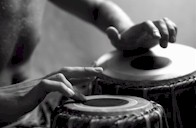
In addition to being a deeply ingrained part of our psychological makeup, tribalism has substantial ongoing appeal as a way for people to deal with a sense of alienated diminishment--a feature of contemporary life that has, unfortunately, become increasingly prevalent.
If I feel that I don’t count for much in the world, that’s painful to me. But if there is some group that I can see myself in and identify with, and if that group is forcing the world at large to sit up and take notice, then at least on a vicarious level, I don’t have to feel quite so inconsequential or invisible.
What if the group asks in some way for my participation--whether by wearing some distinctive color or item of clothing, or by showing up someplace to augment the group’s physical presence, or by engaging in some other activity? Now whenever the group forces the world to take notice, it is also me, personally, making that demand--and being successful every time the group succeeds. This can make me feel quite a bit more plugged into the world… more like a force to be reckoned with.
To the extent that the activities I participate in entail strife or conflict, my rewards are multiplied. Since mastodons roamed the earth, tribal groups have fought with outsiders, and heaped honor on the warriors who have advanced their cause. Standing shoulder to shoulder in combat also tends to promote intense, deep feelings of brotherhood.
All in all, the opportunities a tribe offers for a sense of significance and connection can be a highly potent brew.


